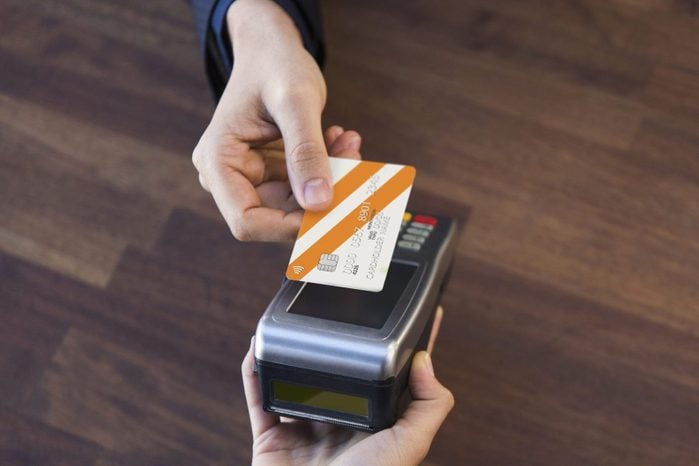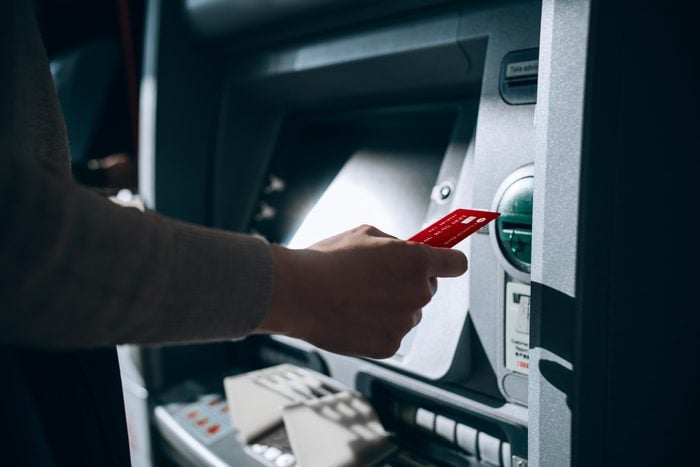
Debit vs. credit
When opening a checking account, most banks or credit unions will give you a debit card. A debit card allows you to make purchases using the funds in your account without writing a check. And while you have the plastic option in your wallet, there are some important reasons why you shouldn’t use a debit card in many situations.
In the debit vs. credit card contest, credit cards typically perform best. Whether you swipe your credit card at a store or use a mobile wallet like Google Pay, credit cards offer robust fraud protections. And if credit cards are responsibly used and the balance is consistently paid off, users can benefit from credit card rewards programs as well (depending on the account type).
So what about debit cards? Perhaps you worry about going into debt or you prefer to always use cash. Maybe you feel more comfortable using funds directly from a checking account. While these may seem like legitimate reasons, it’s important to remember that not all plastic is the same. Read on to discover five reasons why you shouldn’t use a debit card.
Get Reader’s Digest’s Read Up newsletter for more money tips, humor, cleaning, travel, tech and fun facts all week long.

You could put your bank account at risk
For some, using a debit card might help with budgeting or remove the temptation to overspend. “But for major purchases, credit cards are usually a better way to go because they will offer you more protection,” says Leslie Tayne, a financial attorney and the author of Life and Debt: A Fresh Approach to Achieving Financial Wellness.
The risk of fraud often outweighs the convenience of debit cards. If a credit card is stolen or hacked using online scams, a card skimmer or a gas pump skimmer and unauthorized purchases are made, you often have liability protection. When a debit card is used fraudulently, it’s your personal funds that can be drained. “Even though banks still have protections in place for you with your debit card, a fraudster could empty out your bank account before you even realize that your debit card has been compromised,” says Kimberly Palmer, a personal finance expert at NerdWallet. That can be a huge risk for people who use their bank accounts to pay bills, mortgages and rent on autopay. Palmer believes the only reason why you should ever use your debit card is to withdraw money from an ATM or a bank.

You could tie up the funds in your checking account
Another reason why you shouldn’t use a debit card is because doing so could tie up the funds in your checking account. Imagine you use a debit card to pay for a hotel stay, for example. The hotel will likely put a hold on the full rate that’s due at the end of your stay, plus additional funds for potential hidden fees and incidental charges, just in case any arise. “That could definitely impact your ability to use the account for other expenses,” Tayne says. A hold on a hotel stay or a car rental might not be a problem if you have plenty of cash in your checking account or if you’ve used credit card rewards to decrease your hotel bill, but it could lead to bounced checks or overdrafts if you’re not careful.

You could miss out on points and rewards
Many credit cards offer cardholders the chance to earn valuable points, miles or cash back on eligible purchases. “If you use a credit card, you can earn rewards on all your purchases,” Palmer says. “That’s [typically] not the case with a debit card.” So if you’re looking to earn miles or credit card travel rewards, it’s wise to get a credit card with those perks. Debit cards usually lack rewards (especially those that can rival premium credit cards), so you’re not benefiting from the money you’re spending. Missing out on perks and freebies is just another reason why you shouldn’t use a debit card.

Debit cards don’t build credit
Perhaps the biggest con to using a debit card is that it won’t help you build credit history or establish a better credit score. No matter your age, this limitation should be at the top of your list of reasons why you shouldn’t use a debit card. Even debt-free people open credit cards for this reason. Just opening a credit card means that the card issuer will report the account to one or more of the credit bureaus. Securing a credit card, making punctual payments and paying down your balances builds your credit history and can boost your credit score, offering you financial advantages in the future, including lower interest rates, more loan options, higher credit limits and more.

Debit cards have fewer added benefits
Some credit cards feature money-saving benefits, such as extended warranties, price protection, travel insurance, primary rental car insurance and more. You could be missing out on these extra protections just by paying with the wrong piece of plastic at checkout. Some cards offer price protection benefits, which will refund the price difference of a product if it’s later available at a lower price. An extended warranty on eligible purchases is another perk, for example, that offers a free extension on the manufacturer’s warranty without having to pay extra. These benefits can add up to meaningful savings if you take advantage of them.
About the experts
- Leslie Tayne is a financial attorney with more than 20 years of experience. Based on Long Island, New York, the mom of three is also the author of Life & Debt: A Fresh Approach to Achieving Financial Wellness.
- Kimberly Palmer is the author of Rich Mom, Poor Mom and a personal finance expert at NerdWallet. Before branching off on her own, Palmer was senior money editor at U.S. News & World Report and a money features editor at AARP.
Additional reporting by Jen McCaffery.
